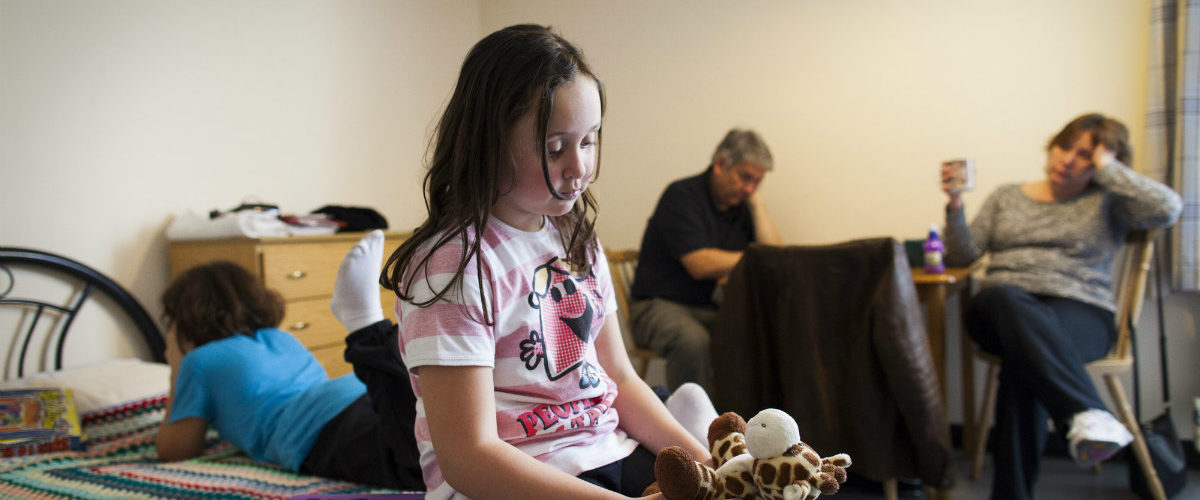Last year, 14,074 children were in households assessed as homeless, equivalent to 38, or a class and a half of children becoming homeless – every single day. This is a new figure provided by the Scottish Government in response to our request for information.
Normally, the statistical focus is on children in temporary accommodation – and this is important. On 31st March 2018, 6,615 children were living in temporary accommodation in Scotland. In fact, we now know, from new figures published in June, that families with children spend longer in temporary accommodation than those without: data on the average length of time spent in temporary accommodation shows that a family going into temporary accommodation today (30th July), can expect to be there until Saturday, 16th February, 2019.
We know, of course, that statistics never tell the full story. But the new figure showing 14,074 children were assessed as homeless last year shows the inadequacy of relying on the number of children in temporary accommodation on any given date as a proxy for those experiencing the real crisis of homelessness.
For instance, it doesn’t cover families like Helen’s* [not her real name], who chose to move in with extended family whilst waiting for housing, rather than using temporary accommodation provided by the council. The family of four slept on two mattresses on the living room floor for three months over the Christmas period before a permanent home was found nearby.
Nor does it include Sophie* [not her real name], a young mum who made a homeless application after experiencing domestic abuse. She was offered temporary accommodation, but it was too far from her home, and would have involved multiple bus trips to her son’s nursery. Instead, she moved in with her two young children to her mum’s house, sleeping on a sofa bed in overcrowded conditions, for three months until suitable permanent accommodation became available for her to move into.
We know that families who are homeless tend to exhaust all other accommodation options before having no choice but to access temporary accommodation: moving between family, friends and other accommodation. Being able to stay with family and close friends, and close to existing support networks is invaluable, but the negative effects that homelessness can have on health and education are not limited to those in temporary accommodation. Families can still experience unsettling and all too frequent moves, and are often staying in overcrowded circumstances. This new figure allows us to understand better the true scale of the number of children experiencing homelessness – so we can make sure we adequately resource and plan support for everyone – including thousands like Helen and Sophie – in this situation.
Alongside a briefing on the true number of children who are homeless and the substantial periods of time spent in barely regulated, so called ‘temporary’ accommodation, we have also been looking at the relationship between health and homelessness.
In June, the Scottish Government published the results of a massive project linking health and homelessness data, looking at the data of over 1.3 million people. This finally gives some statistical evidence to what we already know, and what we at Shelter Scotland see every day with the people we work with: homelessness and poor health are inextricably linked. As a group, for example, people who have experienced homelessness are more likely to have certain health conditions, including those relating to drugs, alcohol or mental health, but it also shows us that over half do not have any such health condition which is an important reminder to dispel the stereotype of homelessness. The relationship that is present, however, shows that value of partnership work between health and homeless services – particularly for those who have multiple health conditions whereby there is an even greater link with homelessness.
Whilst they may have a different focus, what all these datasets and statistics have in common, however, is that they show that that homelessness today is far from fixed: they are a truly damning indictment of the housing crisis we are in.
Three topic briefings relating to the content above are now available to view:


